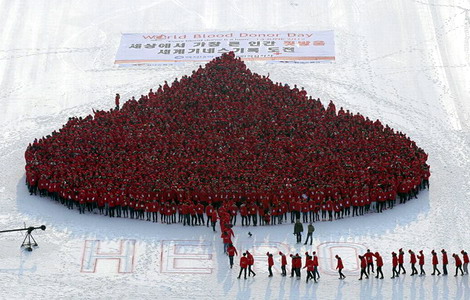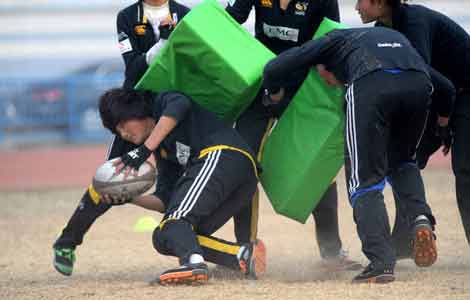Denying Nanjing Massacre an unacceptable provocation
Updated: 2012-02-24 06:31
(Xinhua)
|
|||||||||
BEIJING - This year marks the 40th anniversary of the normalization of Sino-Japanese diplomatic relations, an occasion that ought to be commemorated in a friendly fashion.
However, a recent denial of the 1937 Nanjing Massacre by Takashi Kawamura, the mayor of the Japanese city of Nagoya has done much to spoil the occasion.
The history of Japan's invasion of China during World War II is one of the most sensitive issues in Sino-Japanese relations. Japanese political figures should think carefully before commenting on that particular part of history, as well as avoid improper words or actions that could jeopardize the development of bilateral relations.
After the two countries officially established diplomatic relations in September 1972, late Premier Zhou Enlai and Prime Minister Kakuei Tanaka both realized that mutual trust is vital to developing Sino-Japanese relations.
However, some Japanese political figures, especially right-wing politicians, have denied the Japanese invasion from time to time, a phenomenon that impairs mutual trust.
The Asian-Pacific region bears much proof of the atrocities of the Japanese military during World War II, during which time China suffered the lost of more than 35 million people, soldiers and civilians alike.
The International Military Tribunal for the Far East has affirmed that the Japanese invasion of China was a deliberate action.
The Japanese government has accepted the verdict from the Tokyo Trial and confessed its sins. But some Japanese politicians are unwilling to see the healthy development of Sino-Japanese relations.
In the past four decades, bilateral trade volume has increased to a record high of $300 billion. Exchanges in education, culture, tourism and other fields have been widely undertaken.
The Japanese government should soberly assess the overall state of bilateral relations and criticize political figures who give the wrong signals.
Hot Topics
Wu Ying, iPad, Jeremy Lin, Valentine's Day, Real Name, Whitney Houston, Syria,Iranian issue, Sanyan tourism, Giving birth in Hong Kong, Cadmium spill, housing policy
Editor's Picks

|

|

|

|

|

|






